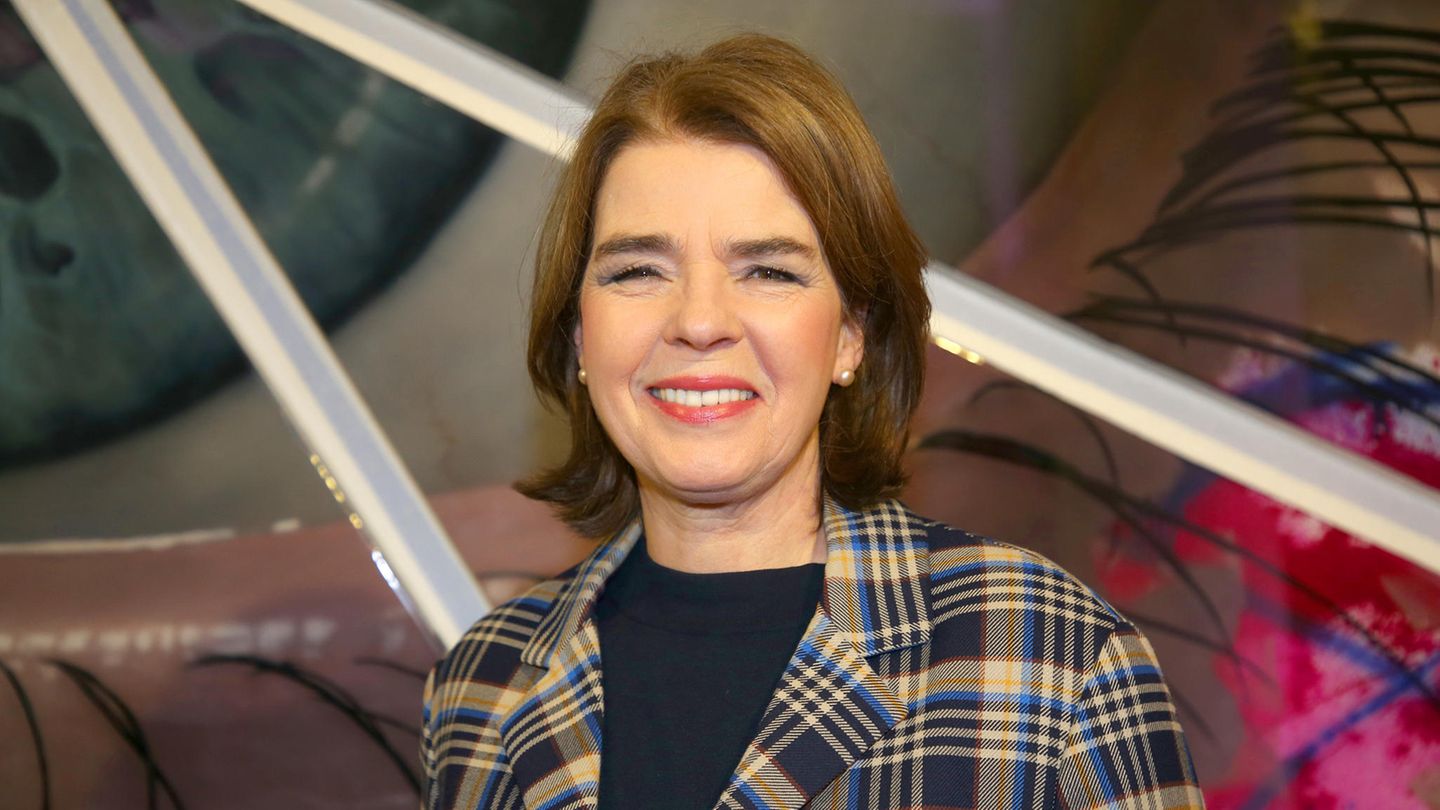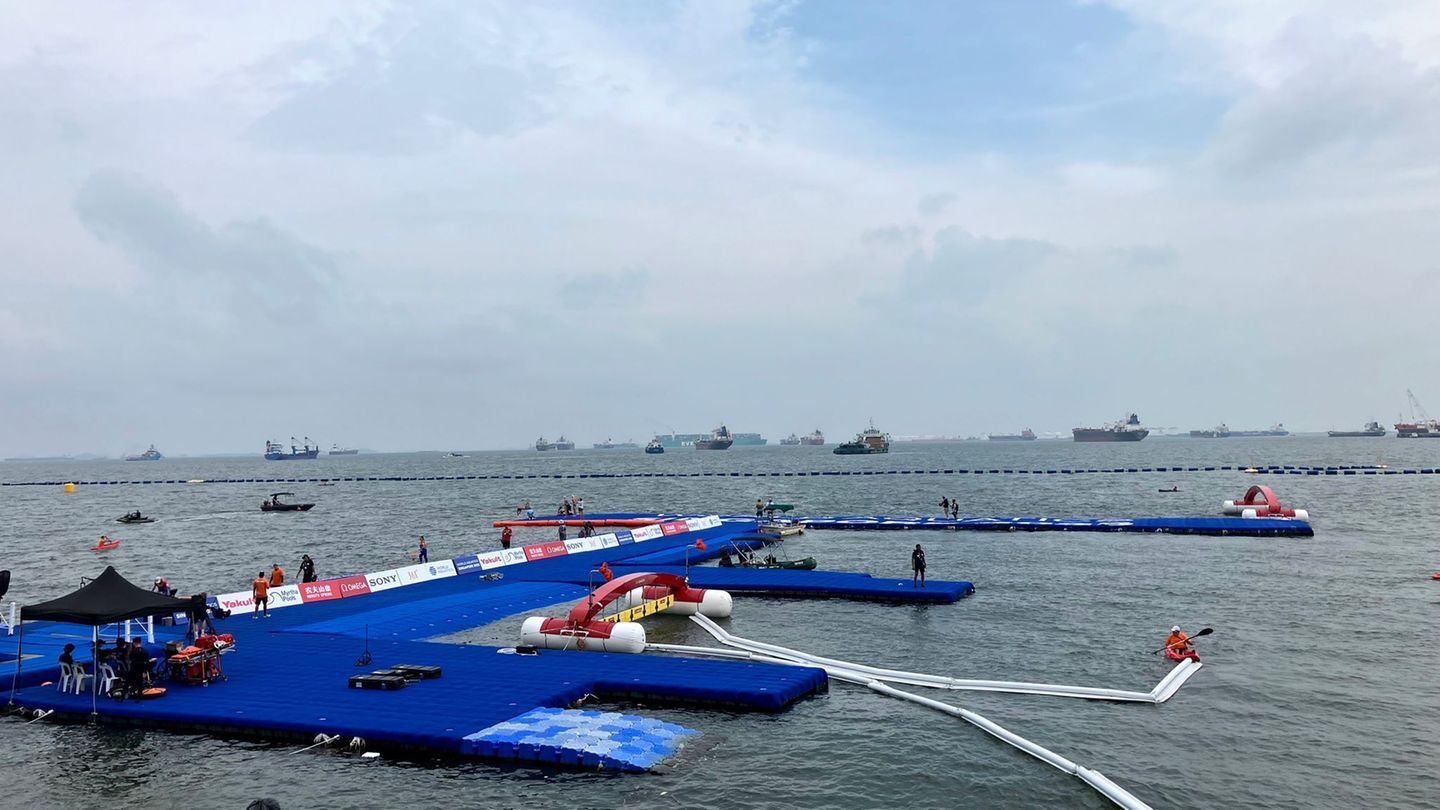Susanne Daubner has been presenting the news on the “Tagesschau” for 25 years. star She reveals how she reacted to sexist headlines when she started and explains why she’s had enough of the news right now.
Woman Daubnerin April 25 years ago you started at the “Tagesschau”. Can you still remember the first recording?
It’s like the first kiss: you never forget such unique moments. The first “Tagesschau” was relatively relaxed for me, as it was only a short broadcast at 1 p.m. However, I was very nervous when I heard my first news broadcast on the radio in 1987. I can still remember it clearly, because my heart was pounding so loudly that I thought no one could understand me, my heartbeat was drowning out everything.
When you were new to the “Daily News“, the DPA devoted an entire paragraph to your appearance, the headline was: “First dark-haired Tagesschau presenter”. How did you react to that?
At first, I found the media hype a little overwhelming – unfortunately, you’re never prepared for it. For me, only one thing mattered: to approach this great opportunity on the ARD flagship channel in a professional and authentic manner. And of course, hair color is irrelevant.
Did the headline annoy you back then?
No. I didn’t take it too seriously. I had to let the fact that I was now part of the “Tagesschau” team sink in and internalize it.
Susanne DaubnerDid you feel that you as Woman were under special observation on the “Tagesschau”?
No, not at all. You should really be asking Dagmar Berghoff that question, as she was the first female presenter of the “Tagesschau”. Incidentally, as a child of the former GDR, I grew up with emancipated women. That was due to the labor shortage in the 1950s and 60s in both German republics. The Federal Republic of Germany brought in guest workers from Italy, Turkey and Spain through recruitment agreements, but who wanted to come to the GDR? So the SED created the appropriate framework and brought the women in. They earned their own money, and thus became more independent and self-confident. That shaped me and, of course, my very own story.
Did you set the “Tagesschau” as your career goal?
No, after fleeing, I lived in Berlin, was a happy mother of a small daughter and worked at the ORB – I didn’t miss anything. The only goal I had pursued for years was the desire to leave the GDR. Away from a dictatorship that took away your air to breathe, away from patronizing, reprisals and the constant fear of being spied on by the Stasi – which could be your best friend.
In 1989, you fled the GDR and crossed a river at the Yugoslavian border and found yourself in dangerous flood waters. How dramatic was the situation at that time?
It was more dramatic than expected. The border river between Hungary and Yugoslavia had overflowed its banks after days of rain, so we were in the water for an entire night instead of an hour. In any case, we were accompanied by many guardian angels, because ultimately this border experience had a happy ending. The escape was the path I had to take and I would do it again in the same way. It was one of many experiences on the way to freedom.
Judith Rakers Tagesschau16.34
When did you realize that you had arrived at the “Tagesschau” and were recognized?
Thank God that took a few years. First and foremost, I am presenting a product that is the result of teamwork. But ultimately, I am the face of the “Tagesschau” and thus a public figure. And that is always a challenge. Tucholsky once summed it up well: “Everyone knows me, but I don’t know anyone.”
Through social networks, you also became known among younger audiences, especially because you regularly announce the youth words of the year on TikTok and Co. Do you also use them in your private life?
Yes, but rarely. Time becomes more and more precious as I get older. I prefer to share it with real people and things.
Susanne Daubner reads youth words at 12.33In addition to the youth word videos, a fit of laughter you posted made the rounds on the internet some time ago and increased your popularity. Recently there was a sound glitch – do moments like that actually annoy you?
No, not at all. It shows that we are only human, who is perfect? Whether it’s the cleaner, the dead battery in my microphone or the fit of laughter last year in the “morning magazine” – it makes us and the show more approachable, more human. Of course, it’s not the rule, but the exception.
Do you sometimes get tired of the news?
Yes. There have always been wars and crises around the world and unfortunately there probably always will be. But then came Corona, then climate change. And when people are no longer noticed by politicians, but only managed, and there is hardly any appreciation, especially for their work performance – that leads to resignation or aggression. And you can feel that in our country right now. What is making me very depressed and stunned personally right now is the humanitarian catastrophe in Gaza. I regularly report on the misery there, but nothing is happening.
Are you also thinking about quitting?
I have an exciting job. It is a privilege to be able to work for the “Tagesschau” and I am very grateful for that. Nevertheless, I am now at a point where I sometimes ask myself: is that all there is? I still want new adventures, to get off the beaten track.
Source: Stern
I am an author and journalist who has worked in the entertainment industry for over a decade. I currently work as a news editor at a major news website, and my focus is on covering the latest trends in entertainment. I also write occasional pieces for other outlets, and have authored two books about the entertainment industry.




